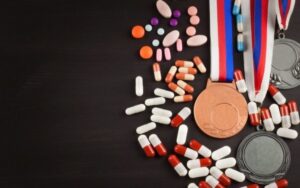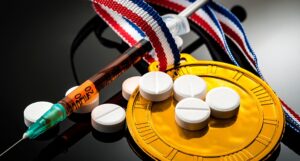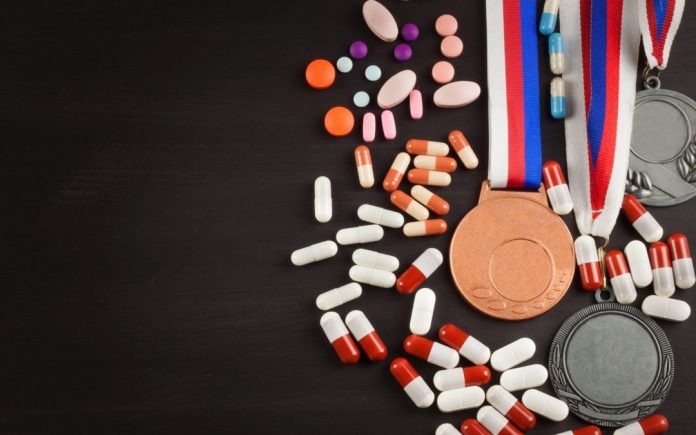
-Vidushpat Singhania
In elite sports, conditioning one’s physical tools and sustaining a level of competence is one of the top priorities of athletes around the world. For the purpose of the same, athletes are often found to engage in consumption of supplements that provide them with the relevant needs of their bodies. While consumption of supplements in itself isn’t prohibited in sport, if supplements contain “prohibited substances” as listed in the World Anti-Doping Agency’s Prohibited List and the presence of such prohibited substances are detected in an athlete’s sample, the anti-doping organizations are entitled to impose periods of ineligibility and fines, on the basis of the facts and circumstances in each matter.
There is a strict liability imposed on athlete’s pertaining to what they consume as part of their dietary regimes in the world of sport. However, how much is an athlete to blame if the consumption of a supplement which is mislabelled, or contaminated at the source, led to the detection of a prohibited substance in the athlete’s sample? This question came to the fore yet again in an Indian context in the matter involving India’s Silver medallist from the 2019 Asian Championships, Mr. Shivpal Singh.
Shivpal Singh was subject to an “out-of-competition” test in September, 2021 and the results of such test revealed the presence of ‘Methandienone’, an Anabolic Androgenic Steroid, in his urine sample. Subsequently, the athlete received a notice of charge from the National Anti-Doping Agency (NADA) imposing a mandatory provisional suspension. The Athlete, after undertaking again a careful review of his dietary supplements, could not identify any product which he had consumed that had listed “Methandienone” as an ingredient. It was at such a stage that the Athlete came across the news that a particular vendor, by the name of ‘Herbal Power Pharmacy’ had been identified by the authorities as a venue for forgery and the sale of contaminated, fake and wrongly marked supplements. The Athlete’s coach had procured particular product named ‘Prime Testo Booster’ from the aforementioned store and the fact that the same store had been found to be a vendor involved in the sale of fake supplements, alarmed the Athlete. Therefore, the Athlete began to suspect “Prime Testo Booster” as the source of the prohibited substance in his system, although the ingredients of the same did not list “Methandienone”.
To end the confusion and to determine the source of the prohibited substance once and for all, the Athlete requested the Anti-Doping Disciplinary Panel to provide him with the opportunity to have the product tested at the National Dope Testing Laboratory (NDTL). Upon receiving interim relief to do so, a sealed and opened container each of the “Prime Testo Booster” was submitted to the NDTL. Subsequent tests confirmed the suspicion of the Athlete and proved that the product purchased from Herbal Power Pharmacy was indeed the source of the prohibited substance. However, despite proving the source of the prohibited substance and identifying a vendor involved in a criminal nexus operating in the sale of contaminated and fake supplements as the seller of the contaminated product in the present matter, the Anti-Doping Disciplinary Panel deemed the Athlete’s “use” of the prohibited substance as intentional, due to athlete disregarding significant risks. As a result, a period of ineligibility of four years, the highest bracket of punishment for a first-time offence, was imposed on the Athlete.
This decision of the Anti-Doping Disciplinary Panel was subsequently appealed by the Athlete to the Anti-Doping Appeal Panel. The Anti-Doping Appeal Panel in its decision took a contrary view to the view taken by the Anti-Doping Disciplinary Panel. It deemed that the Athlete has successfully established on balance of probabilities that he consumed the prohibited substance unknowingly and unintentionally with no motive to cheat or gain an unfair advantage in sport and imposed only a period of ineligibility of one year on the Athlete. Factors such as the manner in which the Athlete procured the product, the “out-of-competition” nature of the test, the fact that the product was a ‘Contaminated Product’ as defined in the National Anti-Doping Rules, 2021, and that the Athlete had promptly disclosed the product in his doping control form went into consideration of the Anti-Doping Appeal Panel while arriving at its decision.
The Anti-Doping Appeal Panel took the view that the Athlete bore “No Significant Fault or Negligence” in his conduct leading to the prohibited substance entering his system and stated that the “Athlete cannot be said to be at fault if the supplier of the products was indulging in corrupt practices and supplying fake supplements” while accurately identifying the fact that the Athlete was indeed the victim of a fraud, under the circumstances.

Further, the Panel also took the opportunity to point out the fact that the NADA has not placed on record, any steps taken by them to curb spurious supplements from being sold in the market despite it having a direct impact on doping in sport in India. The Panel also directed the NADA to take proactive steps in collaboration with relevant regulatory bodies to prosecute and curb the “menace of fake/contaminated supplements” and to frame a policy that devices a clear-cut mechanism to certify shops and establishments that are involved in the sale of supplements across India as a step to ensure that athletes can reliably source supplements without the fear of ending up in an anti-doping quagmire. This is a commendable step, considering how contaminated products have grown in prevalence across India and have become a common factor in various doping incidents. In fact due credit is due to NADA under Ms. Ritu Sain, DG NADA, who have initiated steps to support the establishment of laboratories, which could test supplements.
While the order of the Anti-Doping Appeal Panel took into consideration the plight of the athlete and imposed only a period of ineligibility of one year owing to the fact that the consumption of the prohibited substance was connected with a contaminated product, it is to be noted that only a few months prior, the Anti-Doping Disciplinary Panel took a view that the same warranted a period of ineligibility of four-years.
Implementation of the Anti-Doping Appeal Panels’ directions to the NADA could go a long way to rectifying the issues associated with “Contaminated Products” in India. With proper execution as directed by the Anti-Doping Appeal Panel in the matter involving Mr. Shivpal Singh, as well as the steps taken by NADA India for supplement testing, there could be a considerable reduction in the circulation of fake and contaminated products in the market and such execution could also provide additional metrics for the adjudicating bodies to evaluate the degree of fault associated with athletes too. We hope that the “menace” of Contaminated Products is dealt with due attention and that no athlete is subject to the stress associated with an anti-doping rule violation owing to the consumption of a Contaminated Product in the future.




